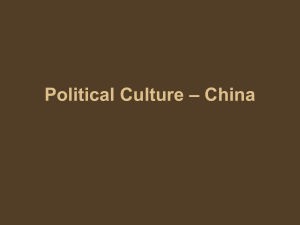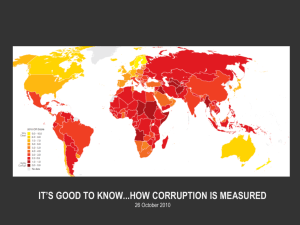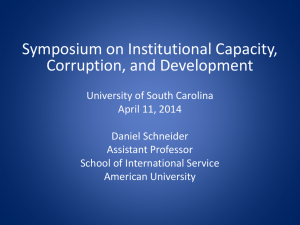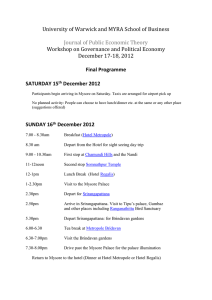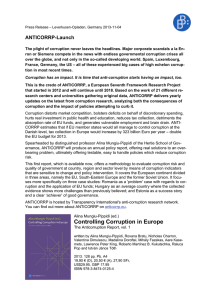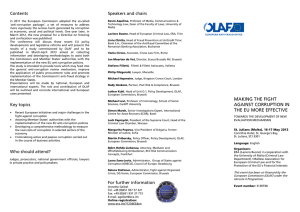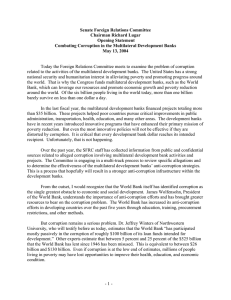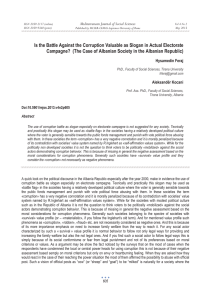Speech by the City’s Executive Mayor, Patricia de Lille, at
advertisement
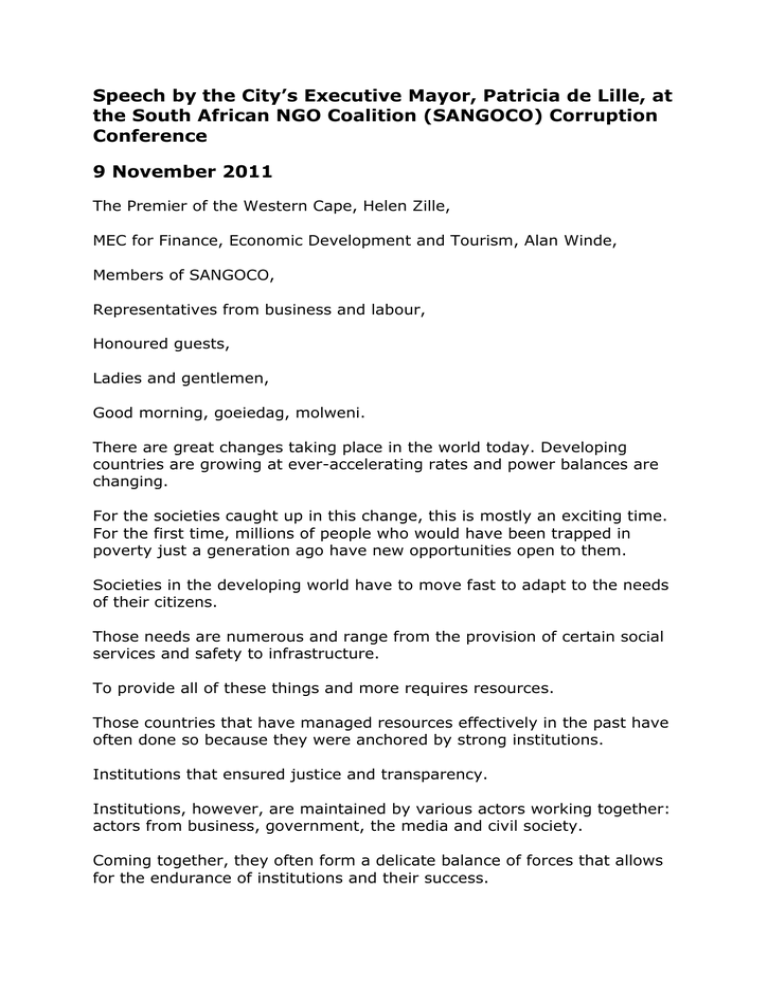
Speech by the City’s Executive Mayor, Patricia de Lille, at the South African NGO Coalition (SANGOCO) Corruption Conference 9 November 2011 The Premier of the Western Cape, Helen Zille, MEC for Finance, Economic Development and Tourism, Alan Winde, Members of SANGOCO, Representatives from business and labour, Honoured guests, Ladies and gentlemen, Good morning, goeiedag, molweni. There are great changes taking place in the world today. Developing countries are growing at ever-accelerating rates and power balances are changing. For the societies caught up in this change, this is mostly an exciting time. For the first time, millions of people who would have been trapped in poverty just a generation ago have new opportunities open to them. Societies in the developing world have to move fast to adapt to the needs of their citizens. Those needs are numerous and range from the provision of certain social services and safety to infrastructure. To provide all of these things and more requires resources. Those countries that have managed resources effectively in the past have often done so because they were anchored by strong institutions. Institutions that ensured justice and transparency. Institutions, however, are maintained by various actors working together: actors from business, government, the media and civil society. Coming together, they often form a delicate balance of forces that allows for the endurance of institutions and their success. And so, even though corruption is a feature of those societies, there are safeguards that prevent complete social decay because of that corruption. As the developing world moves to the forefront of history in the 21st century, we would do well to bear these examples in mind. In South Africa, we have more resources than many. We have a stable and functioning democratic system. We have various social institutions in place. And yet we are still dogged by corruption. Undermined by it, even. Corruption is one of the biggest stumbling blocks to fully achieving the hopeful aspirations of 1994. We all know the problem. We are all confronted by it every day, in all sectors of society, from government to business. And we also all know the endless commitments to stamp out corruption: a culture of non-tolerance. There is something much more powerful than all of us giving empty promises to tackle corruption and that is actually going out there to fight it. Because make no mistake. The corruption that takes from others for personal enrichment robs someone else of their dignity and turns our best plans on their heads. We need to be consistent, fair and resolute. But we must also be vigilant. We have an opportunity to be leaders in the fight against corruption. But we must take action. I urge everyone here to engage fully in these sessions and renew our commitment to the fight against corruption. In so doing, we can truly help change people’s lives. And furthermore, we can change our society.

